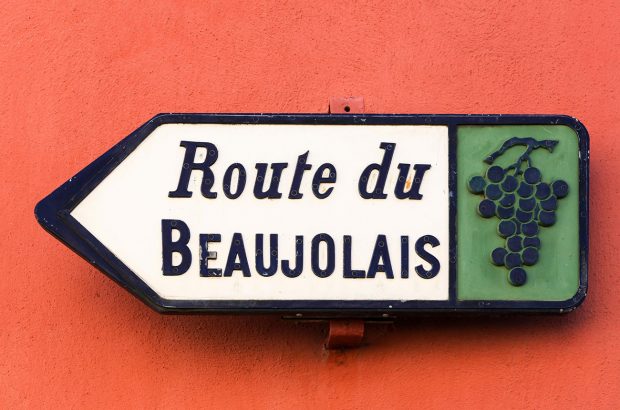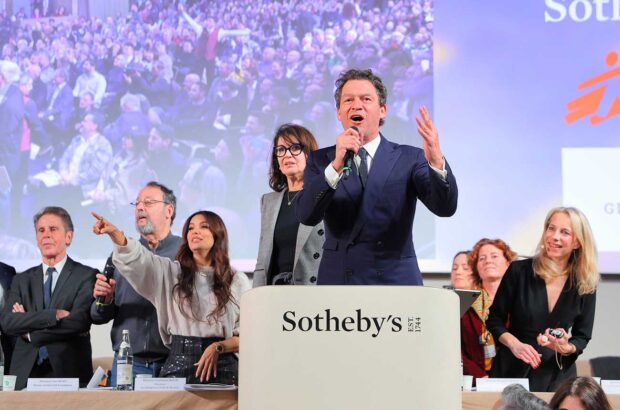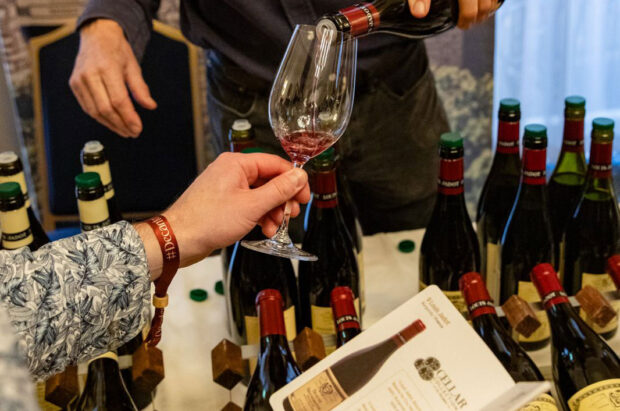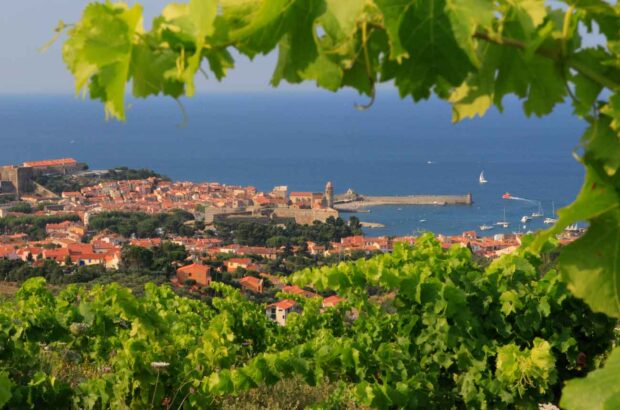Voting figures showed strong support for Marine Le Pen in some wine regions after the French presidential election first-round, but unions hope their members will steer clear in the run-off with Emmanuel Macron.
Why would winemakers or vineyard workers vote for Marine Le Pen, the anti-EU, anti-immigration candidate who until recently headed the country’s far-right National Front?
The simple answer is that plenty wouldn’t, and do not intend to.
But the more prickly reality is that while Le Pen goes into this Sunday’s run-off vote as the underdog to Emmanuel Macron, she topped the first-round polls in some key wine areas.
She beat her rivals across Languedoc-Roussillon, for example, gaining more than 25% of the vote in some areas, and was particularly successful in the Aude department. She also enjoyed strong pockets of support in small parts of Bordeaux, Burgundy and Provence-Alpes-Côte d’Azur wine country, according to analysis by Le Monde newspaper.
Languedoc wasn’t a huge shock. Local newspaper Midi-Libre ran with the headline ‘Le Pen ahead: no surprise’ on 24 April.
She cannot claim to represent the region or its wines, and plenty of wine community members will have voted for the hard-left Mélenchon in an area with strong socialist traditions, plus also Macron and Fillon.
But, observers point out that the National Front has been building support in some of France’s poorer agricultural areas for several years.
Most recently in Languedoc-Roussillon, still France’s largest wine producing region, the National Front has tried to take advantage of tension over cheap Spanish wine imports.
Winemakers claiming allegiance to a long-standing militant group named CRAV – or CAV – have attacked supermarkets and hijacked lorries crossing the Spanish border in the past 15 months.
Unions have condemned the violence, yet warned of a financial crisis facing small-scale producers, despite some laudable efforts to improve the quality and image of Languedoc wines in recent years.
‘The situation [for winemakers] is intolerable,’ said the National Front in a statement released in support of thousands of producers who marched through the streets of Narbonne in March this year.
It has blamed the European Union and linked the problems to an increasingly familiar tale of dispossession by political, social and economic globalisation propagated by an un-caring, wealthy elite.
It’s hard to know how much of this rhetoric translated into votes. One local wine official, who did not wish to be named, believes that the policy had an impact.
‘People want to try someone else,’ he told Decanter.com. There is a feeling that Le Pen would be more effective in controlling Spanish imports than Macron, he added.
Long-term trends of declining wine consumption in France and stronger competition in global markets have produced sustained, underlying pressure on a certain section of France’s wine industry.
Macron used a televised debate this week to accuse Le Pen of telling lies about the economic realities facing France and its workforce.
Not everyone who dislikes Le Pen will vote for Macron, but on this point he strikes a chord with farming sector leaders.
‘I don’t think Le Pen has the solutions to winemakers’ problems,’ said Olivier Lozat, of the Aude branch of the farmers’ union Confedération Paysanne.
For Lozat, the situation in Languedoc is complex and cannot be solved by simply shutting borders and punishing small-scale producers in other countries by depriving them of export markets.
However, he said the struggle was real for many in the area. ‘It really is about putting food on the table,’ he said.
He blamed the policies of some merchants in the area and added that a lack of insurance options against natural disasters left small-scale growers badly exposed to risk.
The Confedération Paysanne issued a national rebuke to Le Pen on Thursday 4 May.
‘We will always view the National Front as an enemy,’ it said, warning farmers not to be seduced.
Another farming union, the FNSEA, also waded into the election run-off. ‘We believe in Europe,’ it said, in a thinly veiled attack on Le Pen’s promise to hold an in-out ‘Frexit’ referendum if she becomes president.
But, the FNSEA also pulled no punches on the challenges ahead for whoever enters the Elysée palace.
One agricultural worker in three earns less than 354 euros per month in France, it claimed. It warned of the ‘silent’ decline of French agriculture, including wine, compared to the greater publicity given to factory closures.
One winemaker in Nièvre, on Burgundy’s western flank, told France 2 television this week that he would be voting for Macron and that others should do likewise.
‘I think that if we boycott foreign products, then others will boycott our products,’ he said. ‘The extremes are never the answer; just look at history.’
Extra reporting by Yohan Castaing.
More articles like this:

French streets run red as CRAV wine terrorists strike again
Masked militants stirke in port town...

French winemakers hijack Spanish wine tankers on motorway

Jefford on Monday: Hitting first
Andrew Jefford looks at two recent political controversies for French wine, and considers their impact...







